I had the pleasure of interviewing Jen Price, Founder and Managing Director of Potnt. Jen and her team manage some of the most recognized PR campaigns in the cannabis industry. Potnt was recently named one of the top cannabis PR companies of 2017 by Cannabis Industry Journal, and Jen was acknowledged by Civilized as one of the top cannabis PR specialists in the United States. Jen is also co-founder of Industry Power Women, and sits on the board of AxisWire.
Thank you so much for doing this with us! What is your “backstory”? How did you first get into this business or get interested in the business?
I began transitioning from the high-tech / startup world over to cannabis when a friend and colleague asked if I would help her and her husband with the launch of their company, Strainz. Their company was started out of necessity in that they could not find the medicine that their identical twin daughters needed for their very rare and fatal disease. CBD helps the girls with their seizures, reducing them in intensity and frequency.
I became so passionate about this curative plant and all of the amazing people I began to meet at conferences and events, and so transitioned completely over to cannabis and hemp-specific PR by early 2016. At the same time, my daughter (now 16), had been getting increasingly ill — — allergies, fevers, infections, etc. She is now a patient at NIH and her doctor’s there believe that she may be one of only six known cases in the world to have a very rare collection of diseases. In part, she began to lose all of her hair two years ago. By January of this past year she had lost around 60% of the hair on her head. In February I began giving her the purest form of hemp-derived CBD that I could
find. (Despite the fact that I have been living in this space 24/7 for four years now, I still hadn’t found a CBD source that I could absolutely, positively trust for her). After taking 50mg of CBD each night, my daughter’s hair is growing back in every spot. Her other symptoms continue to flare, but in many ways the flares have been less severe.
Can you share the funniest or most interesting story that happened to you since you started your company?
I have often been hard at work, planning for a VIP party, hosting a meeting at a manufacturing facility, sampling new cannabis products, pitching one of my clients to a journalist who may be new to the space, or sorting through mountains of “party bag” donations, and a surreal feeling will wash over me. If my 21-year-old self could see me now! Never in my wildest imagination did I envision myself, at 44, wife and mother to two teenage daughter’s, at the helm of a successful cannabis business.

What do you think makes your company stand out? Can you share a story?
The only constant in this world is change, and in the cannabis industry change is constant. The Potnt team intimately understands the cannabis, hemp and ancillary spaces, and we deliver the right message to the right audience at the right time. We have build a culture where creativity thrives and trust resides. We take risks, debate, collaborate and motivate. We bring brands to life.
None of us are able to achieve success without some help along the way. Is there a particular person who you are grateful towards who helped get you to where you are? Can you share a story?
I am forever grateful for Chris Hempel, co-founder of Strainz and one of the co-founders of SparkPR. Chris and I were working together on an internal marketing project at SparkPR when she asked if I would be interested in helping her with her new company, Strainz. She and her husband, Hugh, both formerly of Netscape, founded Strainz after working endlessly to find treatments for their identical twin daughters, Addi and Cassi, now 14. The girls were born with a very rare and fatal disease, Niemann-Pick Type C — otherwise known as “Childhood Alzheimer’s”.
Chris gave me the gift of opportunity. It is incredibly rare to have the occasion to immerse yourself in a brand-new industry from the ground up, after having already been 20+ years into your career. Chris and I traveled to key industry events, visited countless dispensaries, built databases, wrote SOP’s for a MIP’s facility (Marijuana Infused Products), worked alongside scientists on formulations, visited grows, and studied hardware. There is not a part of this industry that we haven’t done a deep-dive on at this point. We are also well-known for our killer VIP parties at New West Summit and MJBizCon. We definitely have mastered a healthy balance of work and play!
Are you working on any exciting projects now?
I am currently working on several exciting projects. Leafwire, a platform designed to link investors with those looking to raise capital in the cannabis space, will be launching this summer. I am working on my third New West Summit, October 11–13, in Oakland, CA. New West focuses on disruptive technology, science, media and investment in the cannabis space. The conference has been so successful out West, that I am proud to partner with Jim McAlpine, founder of New West Summit, to launch a New East Summit in 2019. This conference will bring top innovators, leaders and influencers to the East Coast next Spring. We are also working with BAS Research, California’s first licensed cannabis manufacturing company developing advanced science-driven cannabis oil and extraction services. We just announced the launch of the BASInfused™ certification seal. This decal will be clearly displayed on the packaging of any cannabis products that contain BAS advance science-driven oil, and have therefore met the arduous standards required to ensure the safety and purity of the product. This is particularly exciting for me, personally, because only a very small percentage of the cannabis products for sale in retail environments in California have undergone compliance testing as required by the state. I am passionate about public health and safety, and consumers should be afforded the peace of mind in knowing that their cannabis, their medicine, is free of toxins, fungus, and pathogenic molds that can be dangerous to human beings, especially those with compromised immune systems.
On a personal note, I am working with my daughter, Kristin, to help her to find a sponsor for a study she is looking to conduct on CBD and Alopecia. Kristin, aged 16, is looking to do a full study on CBD and whether it may have the ability to reduce, or perhaps even reverse, the effects of Alopecia Areata. She experienced 60% hair loss on her head, which gradually started about 2.5 years ago. After taking a hemp-based CBD for 10 weeks, we noticed that she had an inch of new hair growth on every single patch that had once been bald for years. Kristin has a deep interest in alternative and plant-based medicine, after having been diagnosed with multiple autoimmune diseases. She hopes to bring awareness and potential treatments to those suffering from “invisible illnesses”.
Her belief is that CBD, as a natural anti-inflammatory, can help so many people as it has done for her. I am thrilled to be her mentor and to walk alongside her on this journey.
Can you share 3 things that most excite you about the Cannabis industry? Can you share 3 things that most concern you?
1. I am most excited by the endless possibility and potential of this plant. Cannabis is currently being studied as a treatment for afflictions like diabetes, depression, cancer, traumatic brain injury, and heart failure, among many other diseases. Cannabis has been found to stabilize blood sugars, act like a neuroprotective to help thwart inflammation of nerves and reduce the pain of neuropathy, reduce anxiety, and even decrease atrial fibrillation, (or A-fib), in patients experiencing heart failure. Can you imagine the possibilities for successful treatment of diseases with little to no pharmaceuticals, which are often accompanied by a collection of undesirable side-effects?
2. It is so refreshing to be in an industry where collaboration often trumps competition and where women are coming together to really lift each other up. Granted there are some exceptions to this, but it certainly has been notable. I think the industry is so attractive to women because the space is young enough to make a significant imprint, and free of the patriarchal norms that tend to dominate other industries. I love a good challenge, and the cannabis industry is full of them. It is fast-moving and requires players to use every skill you have ever acquired, and some. Women are bold and resourceful, and have pushed the door wide open in this space, using perseverance, intuition and the creative solutions necessary to build a billion-dollar industry from seed to success.
3. Cannabis is an exit drug. Cannabis has the ability to almost single-handedly offset the opioid crisis. Two recent studies have shown a correlation between medical marijuana and lowered rates of opioid abuse. Medical marijuana is legal in 29 states, and recent research shows that cannabis use leads to fewer opioid prescriptions, fewer opioid overdoses, and effective, non-addictive pain treatment. No one has ever died from a cannabis overdose, yet we have roughly 115 American’s dying each and every day due to opioid abuse and addiction. One of the key reasons that people begin to use, and ultimately abuse, opioids is due to chronic pain issues and the attempt to manage that relentless agony. Cannabis holds tremendous hope and promise for replacing opioids and successfully treating chronic pain without the risk of addiction or overdose. We need more research to be able to better understand how to best use cannabis, but at this point, the anecdotal evidence is enough to suggest that cannabis can be a way out of opioid addiction for the more than two million Americans who are currently dependent on or are abusing pain pills and street drugs.
1. Lack of federal regulation is a big concern of mine. For a multitude of reasons. While states like Colorado, California, Nevada, Washington and Oregon have thriving legal recreational and medical cannabis industries, a large portion of the U.S., namely the East Coast, does not. We are collectively working hard to destigmatize cannabis, and advance the conversation, while educating the general public as to the benefits of this curative plant, and it is great to see that messaging begin to permeate throughout the country. However, this messaging strictly applies to cannabis that has been rigorously tested and subjected to individual state laws. These laws determine who may cultivate or sell marijuana and under what conditions they may do so. The black market is still alive and well in many states that have yet to legalize cannabis. This is a huge concern of mine as a citizen and as a parent. What’s happening is that the messaging about the plant is getting across, people are learning about all of the wonderful benefits of the cannabis plant, and many are going out and trying to purchase it as they learn that cannabis can help with anxiety, migraines, inflammation, and countless other maladies. However, in states where cannabis is not yet legal, there is a concern that anything purchased through the black market could be tainted.
Cannabis that has not been tested or processed in a scrupulous manner can contain anything from lead, heavy metals, fungus and bacteria, to heroin, PCP, Embalming fluid, laundry detergent and LSD. The comparison of the quality of cannabis in a state like Colorado, where it is fully legal, to a state like Oklahoma, where it is not, well it could be like comparing a Goldfish to a Great White. I believe, wholeheartedly, in the power of this plant, and I want to see all Americans have safe, unobstructed access to this medicine and the freedom to choose this treatment over prescription drugs should they prefer.
2. Since cannabis remains illegal on the federal level, and banks are federally insured, most financial institutions will not service cannabis businesses. In states where medical or recreational marijuana is legal, dispensary owners, manufacturers, and anybody who “touches the plant”, continue to face a host of operational hurdles, including a reluctance by banks to do business with them. Aside from a huge inconvenience and the need to find creative ways to manage financial flow, payroll logistics, and payment of taxes, this also poses the tremendous personal safety risk of operating a lucrative business in cash. This lack of access to traditional banking is certainly inhibiting industry growth. On the extreme end of the spectrum, if banking services are not soon extended to the legal cannabis industry, many companies are likely to be forced out of business.

Can you share your top “5 things you need to know in order to succeed in the Cannabis industry”? Please share a story or example for each.
Think WAY outside the box.Throw tradition aside, at least for now. There are significant hurdles in marketing cannabis brands. Platforms like Google, Facebook, Instagram and YouTube prohibit the promotion of cannabis products. Even if you manage to get your platform up and running, there is a very real risk that your page, and all 10K followers, will disappear in the dark of night. Instead, look towards influencers who can help to promote your brand to their loyal followers. This will certainly help to grow your brand in an organic and sustainable manner.
Harvest your data. The importance of predicting trends, supporting sales and facilitating compliance is invaluable. Likewise, pushing understandable and applicable data out to consumers who are trying to understand this nascent space is imperative. The cannabis plant is extremely misunderstood. Using the tools at hand to capture data and to promote research is crucial.
Surround yourself with good, hardworking people, who you can trust and have a little bit of fun with. The cannabis industry is not for the timid, nor for the 9 to 5er. Be prepared to work seven days a week while getting paid less than half of what you are worth. Opportunities abound in this industry, but take care to protect yourself.
Partnerships can crumble quickly, and a ton of hard work can be pulled out from under you if you don’t take the necessary measures to safeguard yourself and your efforts.
Play nice with others. While this industry is burgeoning, it remains quite intimate. There are only about 2-degrees of separation in the space. Competitive tactics that may be commonplace in other industries are abhorrent in cannabis. The general culture is different. I have seen attempts at getting competing events shut down, I have heard of brands alerting competitor’s banks and getting their business accounts closed, and there have been others who have tampered with products to try and force recalls. This industry is complex enough without having to deal with insecure opponents. I honestly believe that this is a big enough space for everyone to compete and thrive without resorting to unsavory tactics.
It’s okay to ask for directions. Be wary of the person operating in this industry who seems to know everything. It’s nearly impossible. Friendships, and maybe even partnerships, can be formed when you reach out to someone who is more experienced in a certain category and ask for help. Entrepreneurs are typically working with just a few, if any, colleagues. This environment can be lonely. Create or join a support system like Industry Power Women, where you can put out any kind of request, ask for opinions, or share successes, with a group of like-minded people who understand and support your efforts. This is a perfect way to broaden your network and take control of your business.
In our experience when people are passionate about what they do they are more successful. Where does you cannabis passion come from?
I am passionate about people. I want to make everyone smile a bit wider, live a little freer, just to be comfortable within themselves. I have seen cannabis change lives. My daughter’s life has changed and she now has hope. I’ve been inspired by friend’s who are former NFL players who have gone from true despair to genuine peace and happiness. I have watched as a family transformed from steadfast disciples of Reefer Madness to students of the plant, desperate to help a loved one suffering from ALS. I have seen my close relatives and friends wish out loud for a good night’s sleep, just one pain-free round of golf, relief from agonizing PMS. One less migraine. One more productive day. Knowing what I now know about cannabis and about this industry, despite all of the challenges and roadblocks, I wouldn’t trade it for a minute. I have never in my life felt more empowered or inspired.
Where do you see your business going in the next 5 years? Where do you see the cannabis industry going in the next 5 years?
Potnt is growing steadily, and I believe will continue to do so for a long time to come. In many ways, we have matured alongside our clients, navigating this extremely complex and ever-shifting space together.
I believe that the next five years in the cannabis industry will be head-spinning. Today we are concerned about shifting regulations, shortage of business and finance experience in an entrepreneur-dominated space, and creating a viable solution for a deficient banking system. I think five years from now we will be in the midst of one of the most historical eras in time. Because the cannabis industry has been so difficult to operate in, because of all of the resistance and creative solutions that everyone has had to employ, I believe that entirely new industries will spin-off as cannabis becomes wholly legalized. Cannabis and the Green Rush is set to change the way we spend money, the way we choose to fuel our health and wellness, nurse our illnesses, apply our skills. Cannabis is literally having a transformational economic effect on our country.
Are you able to identify any rising stars at your company or in your industry that people need to keep an eye on?
What growth sectors should most people be paying attention to that they might not be currently?
I think the CBD-specific market is poised to skyrocket. CBD, or Cannabidiol, is extracted from the flowers and buds of marijuana or hemp plants. It is a non-psychoactive cannabis compound, and therefore won’t get you high. CBD is a natural anti-inflammatory and has also shown to have anti-pain and anti-psychotic properties. While much scientific and clinical research still needs to be done, it has been shown that CBD has potential to treat a wide range of conditions, including arthritis, diabetes, menstrual cramps, PTSD, depression, and even acne. CBD is safe even at extremely high doses, and is non-toxic with no known fatal overdose levels ever reported.
CBD is generally misunderstood, and in many cases consumers are completely unaware that this treatment even exists.
I am a huge advocate for the use of CBD. My daughter uses hemp-derived CBD daily to treat her chronic pain and alopecia, (her hair is growing back!), and my husband uses it daily as well to alleviate chronic pain and neuropathy. Both have been able to reduce their use of prescribed narcotics by over 50%.
However, it is imperative that consumers do their research prior to purchasing CBD products. This market is currently unregulated and there are very few brands that use the highest standards to ensure safety and effectiveness.
Some of the biggest names in Business, VC funding, Sports, and Entertainment read this column. Is there a person in the world, or in the US whom you would love to have a private breakfast or lunch with, and why? He or she might see this. 🙂
It would be my honor to meet Bill Gates. It seems like his wealth has not changed who he is, it has only emboldened him to give more. He seems so relatable and I feel that we may have a lot in common. We are both avid readers, creative thinkers, optimists, and aren’t afraid of using unconventional approaches to try and scale life’s hurdles.
His efforts to alleviate poverty and health burdens for millions around the world is beyond admirable. I am most interested in his work to solve the riddle of Alzheimer’s disease. The fact that he is devoting $100 million towards research, (50% of that earmarked for the Dementia Discovery Fund which focuses on innovative research), is simply incredible. My grandmother was my hero. She meant absolutely everything to me, and she passed away a few years ago after suffering from severe dementia.
Watching that decline was heartbreaking.
There have been some studies on cannabis and its effects on dementia and Alzheimer’s. One study found that THC, the psychoactive ingredient in cannabis, stimulates the removal of toxic plaque in the brain, a common feature of the disease. Researchers also discovered that it blocks the inflammation that damages neurons in the brain. While there is so much additional research that needs to be done, caregivers of patients with mild or moderate dementia have reported that the plant has proven effective in alleviating the confusion and agitation that sometimes accompanies the disease.
Putting wealth aside, we all have a responsibility to use our talents to make this world a better place. I’ll bet Bill Gates would have a tip or two for someone like me, as I look to leave a positive footprint on this complicated world.

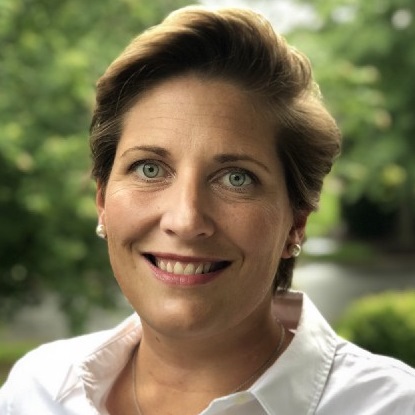
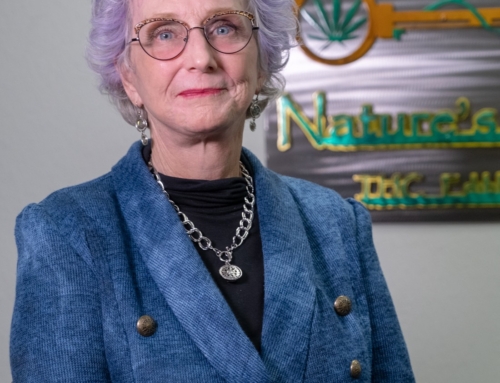

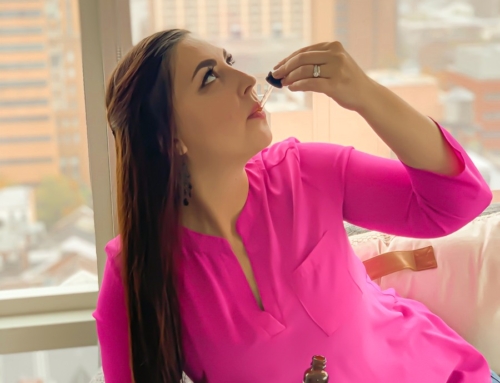

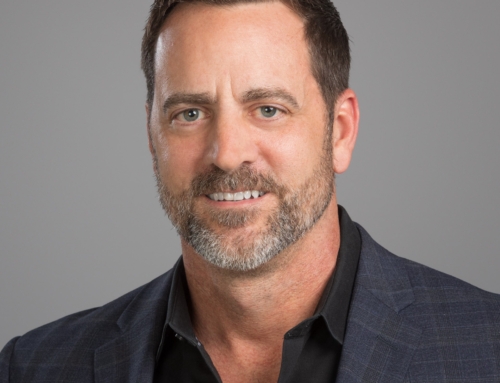
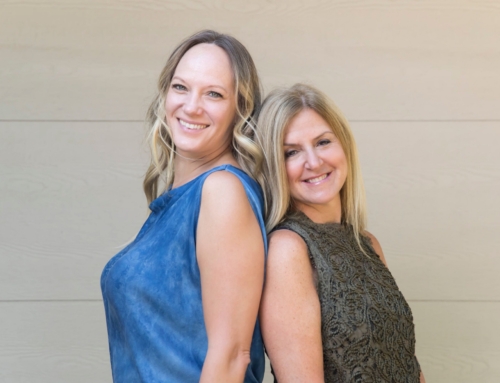

![“The potential to help people [in this industry] is enormous, but there’s still so much to learn.” – Ramon Alarcon, Witi](https://lakesideremedy.com/wp-content/uploads/2020/12/1thj5ekUyxQ69iLz1JJyODg-scaled-e1607882756286-500x383.jpeg)
